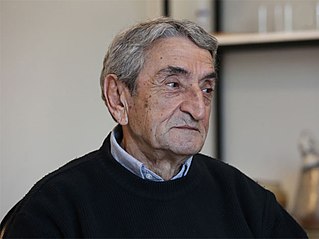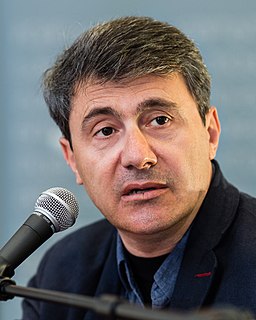 W
WPrince Alexander Amilakhvari was a Georgian nobleman and author who was a supporter of enlightened absolutism and also openly opposed King Erekle II’s rule.
 W
WBagrat was a Georgian royal prince (batonishvili) of the House of Bagrationi and an author. A son of King George XII of Georgia, Bagrat occupied important administrative posts in the last years of the Georgian monarchy, after whose abolition by the Russian Empire in 1801 he entered the imperial civil service. He was known in Russia as the tsarevich Bagrat Georgievich Gruzinsky. He is the author of works in the history of Georgia, veterinary medicine and economics.
 W
WIoane was a Georgian prince (batonishvili), writer and encyclopaedist.
 W
WVasil Barnovi was a Georgian writer popular for his historical novels.
 W
WDaniel Chonkadze was a Georgian novelist primarily known for his resonant novella Suramis tsikhe.
David Bagrationi, also known as David the Regent, was a Georgian royal prince (batonishvili), writer and scholar, was a regent of the Kingdom of Kartl-Kakheti, eastern Georgia, from December 28, 1800 to January 18, 1801.
 W
WGeorge the Hagiorite was a Georgian monk, calligrapher, religious writer, Theologian and translator, who spearheaded the activities of Georgian monastic communities in the Byzantine Empire. His epithets Mt'ats'mindeli and At'oneli, meaning "of the Holy Mountain" (Hagiorite) and "of Athos" (Athonite) respectively, are a reference to his association with the Iviron monastery on Mount Athos, where he served as hegumen.
 W
WVaja Gigashvili (IPA: [vɑʒɑ ɡiɡɑʃvili]; Georgian: ვაჟა გიგაშვილი; was a Georgian writer and playwright.
 W
WMikheil Javakhishvili was a Georgian novelist who is regarded as one of the top twentieth-century Georgian writers. His first story appeared in 1903, but then the writer lapsed into a long pause before returning to writing in the early 1920s. His recalcitrance to the Soviet ideological pressure cost him life: he was executed during the Great Purge and his writings were banned for nearly twenty years. In the words of the modern British scholar of Russian and Georgian literature, Donald Rayfield, "his vivid story-telling, straight in medias res, his buoyant humour, subtle irony, and moral courage merit comparison with those of Stendhal, Guy de Maupassant, and Émile Zola. In modern Georgian prose only Konstantine Gamsakhurdia could aspire to the same international level."
 W
WZurab Karumidze is a Georgian writer and culturologist, born August 22, 1957 in Tbilisi. He graduated from Ivane Javakhishvili Tbilisi State University, the faculty of Western European languages and literature with the major in English literature.
 W
WAlexander Kazbegi (1848–1893) was a Georgian writer, famous for his 1883 novel The Patricide.
 W
WBesik Kharanauli is a Georgian poet and writer.
 W
WPrince Dimitri Ivanes dze Kipiani was a Georgian statesman, publicist, writer and translator. A leader of Georgia's liberal nobility, he was known for his work in support of the Georgian culture and society, a cause that led to his 1886 exile and murder at the hands of Russian Imperial authorities. In 2007 he was canonized by the Georgian Orthodox Church as a saint.
 W
WDavid Kldiashvili was a Georgian prose-writer whose novels and plays are concentrated on the degeneration of the country’s gentry and the miseries of the peasantry, boldly exposing the antagonisms of Georgian society.
 W
WMikheil "Miho" Mosulishvili is a Georgian writer and playwright.
 W
WMichel Tamarati, born Mikhail Tamarashvili, was a Georgian Roman Catholic priest and historian, known for his oft-cited French-language history of the Georgian Christianity L'Eglise géorgienne des origines jusqu' à nos jours published in Rome in 1910. He died while trying to rescue a drowning man in stormy sea near Santa Marinella, Italy.
 W
WJacob of Tsurtavi also known as Jacob the Priest was the 5th-century Georgian religious writer and priest from Tsurtavi, then the major town of Gogarene and the Lower Iberia.
 W
WDavid "Dato" Turashvili is a Georgian fiction writer.